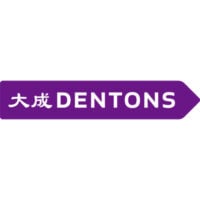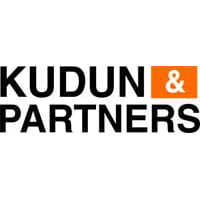
China 2019

Chief compliance officer and general manager of legal and compliance department | Taikang Insurance Group





Yi Jin
Chief compliance officer and general manager of legal and compliance department | Taikang Insurance Group
Chief compliance officer and general manager of legal and compliance department | Taikang Insurance Group
What are the most important transactions and litigations that you have been involved in during the last two years? The most important transaction in the past two years is the restructuring of Taikang Life Insurance Company and the establishment of Taikang Insurance Group based on the above restructuring. I was responsible for the legal affairs of the project. On one hand, Taikang Life Insurance is a huge insurance company, so in the restructuring process, there were a lot of legal affairs and challenges such as customer rights protection, creditor protection, regulatory approval, asset and liability spin off, insurance contract transfer, and the establishment of a corporate governance structure. On the other hand, as head of the legal department, my team was also in the process of restructuring. The legal department and compliance departments was merged into a single legal and compliance department, and at the same time, the new department was divided into the Group’s department and Taikang Life’s department. This is a huge challenge to our management ability. In the process, we must engage with both angles, the legal profession and Group management at the same time. For the past two years, we have managed litigation for our trademark “Jan Bo Tang”. This case was called “the first case of intellectual property rights in China’s insurance industry” by the media. The case involved ¥49m. But the most important aspect of this case is that it reflects the increasingly unclear boundaries of business and the practice for judicial definition of the scope of trademark protection in the technology-driven trend in traditional industries. Have any new laws, regulations or judicial decisions greatly impacted your company’s business or your legal practice? Recently, one of the most important events in China’s finance industry is the merger of CBRC (China Banking Regulatory Commission) and CIRC (China Insurance Regulatory Commission), forming CBIRC (China Banking and Insurance Regulatory Commission). A unified regulatory authority helps integrate regulatory synergy between two finance sectors. At the same time, it also puts more external pressure and challenges on compliance management of the insurance industry, from marketing and sales to corporate governance structure. Therefore, insurance companies’ legal departments are rapidly changing from legal management to compliance management, transforming and upgrading to cope with the increasingly strengthened regulatory requirements. When selecting a law firm, what criteria do you evaluate the potential firms by? I think the following three points are the most important:
First, customer orientation. From a company’s point of view, the value of external firms is not only derived from providing professional legal opinions and services, but also solutions. But most lawyers offer only partial results in the value chain of solutions. Therefore, being customer-oriented can create a closer bond between law firms and clients. Second, quick response. In-house counsels and external lawyers are also under constant pressure of responding “as quickly as possible”. Thirdly, price. Large companies often have centralised bidding and procurement management systems, so price is a very important factor in the selection process. What would you say are the unique qualities required to be successful as an in-house lawyer in your industry? In addition to professional competence, I think the following three points are crucial: First, curiosity: Curiosity represents potential for learning and development of an individual. Curiosity can also enable an in-house lawyer to observe and analyse problems from different angles, which is critical in a rapidly changing business environment. At present, Taikang Insurance Group’s business covers insurance, asset management, healthcare industries, which is in rapid change and development. Therefore, it is difficult for in-house lawyers who are not curious about new things to adapt and survive. Second, challenge: Once facing a fight-or-flight situation, the choice for in-house lawyers must be to fight. Legal work is adversarial in nature. Without the courage to face pressure, challenge and conflict, in-house counsel don’t meet their basic job requirement. Third, communication: Taikang Insurance Group has about 50,000 employees and 600,000 sales agents distributed in nearly 5,000 branches nationwide. And there are around 500 colleagues in the legal and compliance function. We have to engage many people and functions to finish a mission. Therefore, communication and other related soft skills, such as coordination, negotiation, presentation, and project promotion is crucial to succeed in a big group. In what ways do you see the in-house legal role evolving in your region over the next few years? I think the biggest evolution in the next few years will be technology-driven. More and more intelligent, online and digital legal management tools are applied in practice, which will become powerful challenges and alternative tools for legal professionalism. For example, intelligent contract drafting and due diligence based on big data are reducing the value of internal and external lawyers. Therefore, the legal management of the company must follow the trend. In-house lawyers shall further transform and upgrade themselves to become product and brand managers of legal management systems and a bridge between the legal profession and company’s management and information technology system. What will be the main focus for the company in the next 12 months and how do you intend to assist with this? Strengthening the Group’s synergy will be the priority in the next 12 months. Taikang Insurance Group spans several huge industries including insurance, asset management and healthcare, and tries to integrate its industrial chain. In this process, legal management is of vital importance. We will further improve our legal professional ability in business-related fields, expand our management team, and strengthen cross-border learning ability and management ability, as well as apply intelligent tools of information technology in legal management.